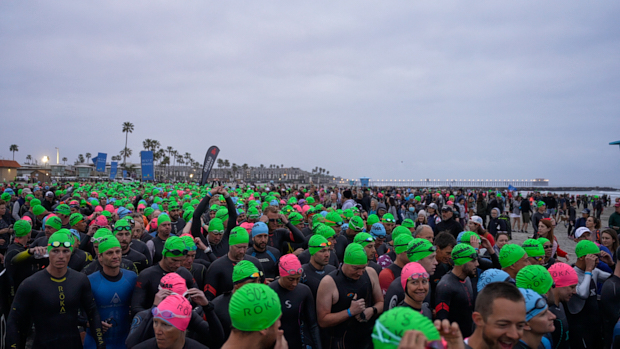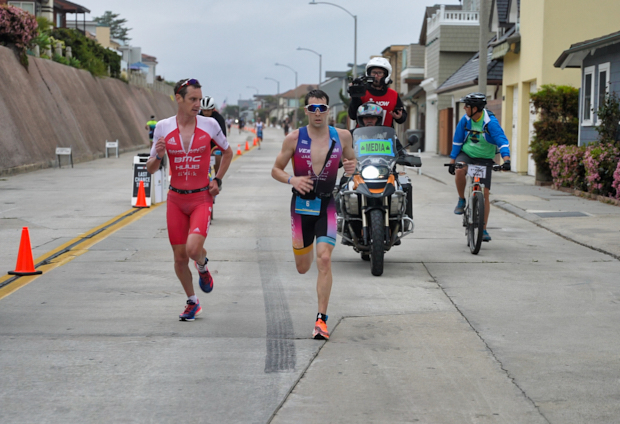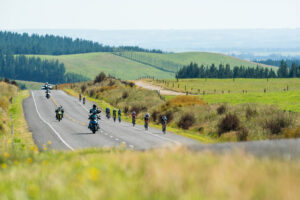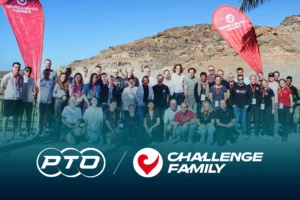As IM Enters New Era, Imagination is Key

I’m writing this in preparation for what I really want to write, which is an open letter to IRONMAN’s new CEO Scott DeRue, telling him what I would do if I were in his seat working instead of my seat spectating. Which comes next. I’m sure he’s on the edge of his chair eager to read it!
To be clear, I love this new hire. DeRue seems exactly the match. I just think this is a moment of focus for IRONMAN as it sets the tone for its future. How will it proceed? With deals facilitated by imagination, or deals pushed on stakeholders by brute force?
I’m going to borrow from my own experience. It wasn’t IRONMAN that opened the formerly closed-to-triathlon venues of Oceanside and Camp Pendleton Marine Base. It was me. In 1997 I decided to resuscitate the old U.S. Triathlon Series and the San Diego North County city of Oceanside was my first venue. I’ll relate 2 stories (and please forgive me if this isn’t the first time you’ve read or heard any of this).
The fellow who owned the bait shop in the Oceanside marina, where we planned to have swimmers exit the water, was our biggest critic. “If you close the boat ramp at 7am you’ll ruin my business for the whole day!” City Hall felt him. Yes, I had the power to shut down the pier and leave him with a bad taste. Instead I called him. “How much bait will you sell on that day?” I asked. “If you shut down that boat launch I’ll be out $500.” It’s easy to guess how I solved this. “Why don’t I just write you a check for $500?” He thought a moment, and said, “You don’t need to write me that check. But it means everything that you offered.” He ran the aid station in the marina on race day. He became one of the event’s biggest civic boosters.

In year-one of our Oceanside race we flyered the houses on the main drag, telling them to move their cars on race day. We put up signs. We snail mailed. We did it all to make sure that road along the beach was clear of cars. What we did not reckon on were vacation renters showing up at midnight before the race. We had to tow a half-dozen cars. It was painful on our budget, and we didn’t have to, but we bailed each car out of impound at $375 per. Leading up to the race’s second year I asked the City if it had an empty lot near transition we could use and they gave us one. I hired a tow truck and driver, which cost us $350 for a half-day. We had the driver tow cars to that lot next to the pier. When fearful and angry vacationers showed up asking where there navy blue Chevy Malibus were, I pointed 50 yards away and asked, “Could that be your car? Walk over and they’ll give you the keys.” As you could imagine everyone was thankful and relieved. Again, I could have plowed through, using the 50 percent + 1 majority I had on the city council and left those vacationers with a bad taste and a lighter wallet. But that bare majority goodwill is going to become ill will at some point, and you will not only lose your venue, you’ll lose it for anyone who can treat a host venue better than you can.
I left my old gig and started my new company, which you’re patronizing now. The company I used to manage chose a different path and abandoned event production. IRONMAN was happy to take over that Oceanside venue and many of you have raced it.
Believe me when I tell you, the forces aligned to keep that venue closed to multisport, both in Oceanside and especially on that marine base, were many and formidable. What made that venue a long term partner to our sport – which IRONMAN to its credit has been able to keep for a quarter century – was the decision early on to make each transaction a win for all stakeholders. If you lack imagination you fall back on bully tactics. You choose strength alone because you’re a lazy thinker and brute force is the lazy way out.
Much of IRONMAN seeks fair consideration for all stakeholders in a transaction. But there are too many stories I’ve heard where this wasn’t so. (I'll be more specific in my second installment.) IRONMAN gets a do-over now in how it approaches stakeholder relationships. “Am I giving at least fair value if not better than fair?” is a question everyone at IRONMAN should ask him or herself when executing any agreement with anyone at any level. “Have I done my level best to make sure the other side of this transaction will be happy with the outcome?” DeRue has the opportunity to demand this culture and in my opinion this is the difference between a flourishing IRONMAN and one that just treads water.







Start the discussion at forum.slowtwitch.com